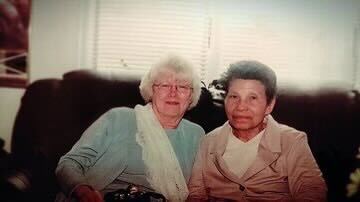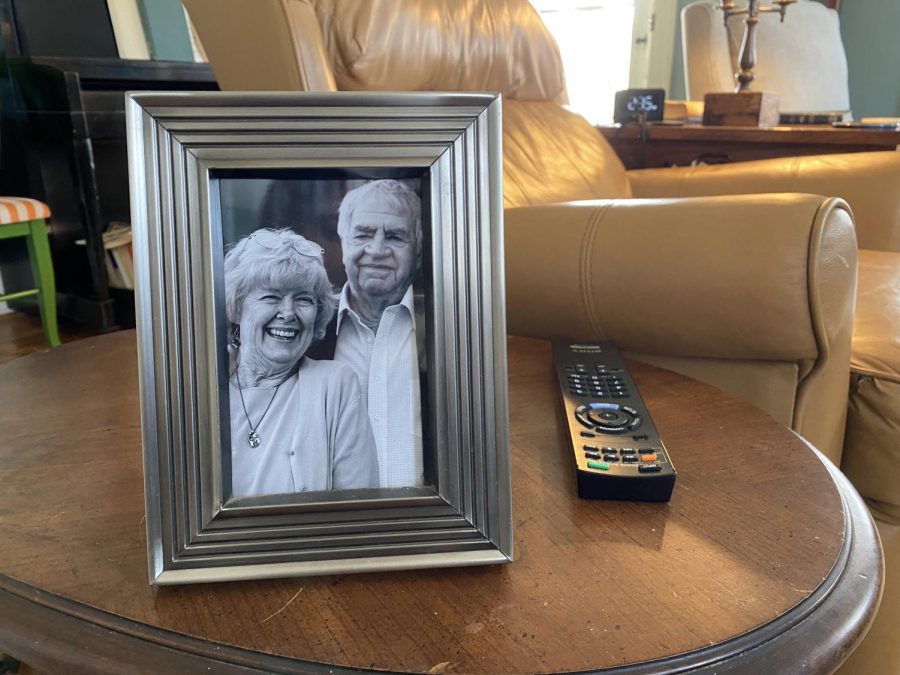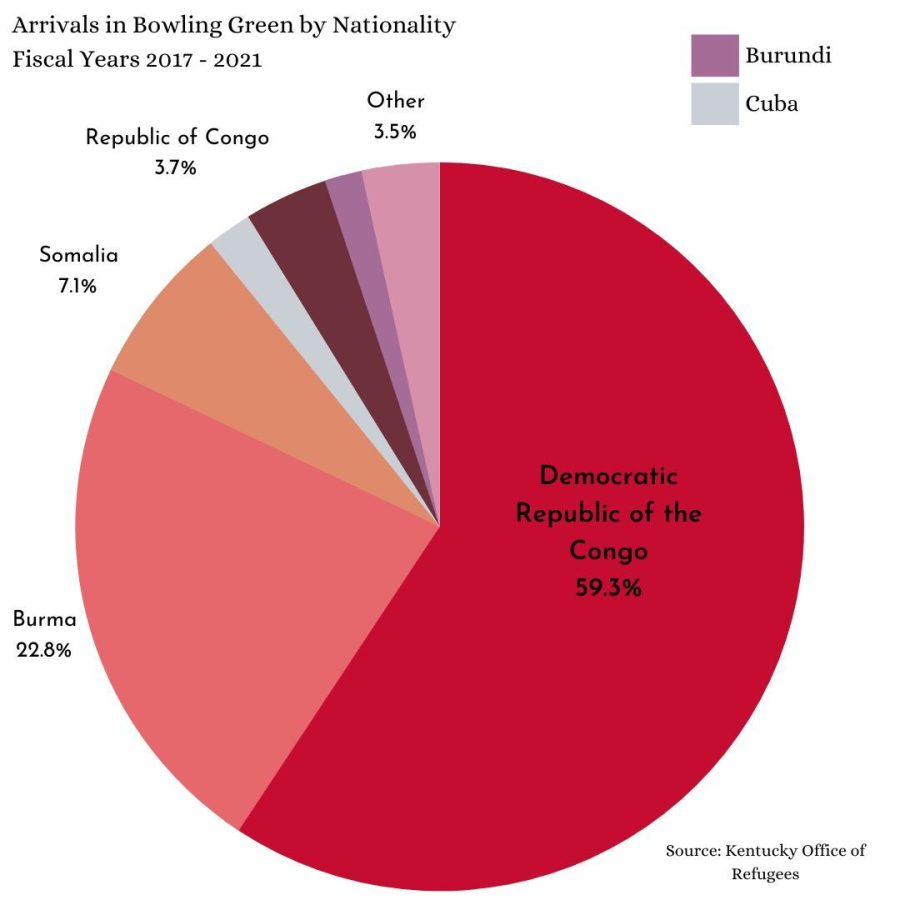‘Everyone deserves a chance’
How Bowling Green developed its foreign-born population
April 28, 2023

Seeking the “land of opportunities,” 19-year-old Vilson Qehaja alongside his family and his sister emigrated from Kosovo during the war 24 years ago.
With only a pillow and mattress, Qehaja found himself knocking on the door of Christ Episcopal Church on State Street for help, just one block from the apartment where he and his refugee family had been placed.
“They asked me what type of help, and I said ‘any kind,’” Qehaja said. “All I have is a mattress and a pillow.”
Within 24 hours, the church had provided Qehaja and his family with everything he would need to get started in America. He was given beds, a couch, a small TV, kitchenware and even a small computer.
Qehaja, a Muslim in Kosovo who has since converted to Christianity, said the church members showed him motherly love and guided him.
“It made me feel that people care about other people,” Qehaja said. “Humanity was not lost in people. Today, I try to imitate them as much as I can.”
Qehaja became fond of Bowling Green and the people here. The southern hospitality in the city is hard to find in other places, he said.
Qehaja’s journey from war-torn Kosovo to Bowling Green was part of a wave of refugees who have largely been welcomed with open arms and who have played a significant role in reshaping the fabric of the region. Refugees from the war on eastern Europe helped make the city a resettlement center that has since brought people fleeing persecution and genocides from around the globe and, in turn, made the community more welcoming to immigrants of all sorts.
Now Qehaja is now able to see how far he’s come.
Today, he runs a well-known restaurant in a refurbished church right across State Street from Christ Epsicopal Church. The building, with its large columns and vibrant stained glass windows, is known as Anna’s Greek Restaurant. Qehaja’s wife, Anna, uses her Greek upbringing to provide Bowling Green with a previously untapped food genre.
One of the first places Qehaja and his family turned when they arrived in Bowling Green was the International Center of Kentucky, a refugee resettlement nonprofit that helped the family get IDs and Social Security numbers. Soon, Qehaja started working in the International Center, translating between Bosanian, Albanian and English.
“… As soon [as] I got my Social Security, I had my first job literally the next day,” Qehaja said, “and then two days later, I had my second job.”
Bowling Green has welcomed waves of refugees over four decades, beginning with the Cambodians in the 1980s and then Bosnians in the 1990s, as well as Iraqis, Burmese, Rwandese and Congolese and others, who have helped make the city of approximately 74,000 a diverse and economically thriving place.
Prior to the 1990s, the immigrant population remained in the 1-3% range, but in the 90’s, that number began to accelerate steadily. The U.S. Census data shows that immigrants made up 10% of the city’s population in 2010 – now that number stands at 14%, according to the City of Bowling Green – a number that many think underestimates the number of community residents born in another country.
From 2017-2021, 1,973 foreign-born people arrived in Bowling Green through the International Center, according to the Kentucky Office for Refugees.
The International Center, a Bowling Green establishment founded in 1981, was a key to open doors for refugees.
Today, it is at the heart of the refugee community that has adopted the city as home.
The center aims to help refugees have a safe and comfortable transition to living in the United States. Their services include job preparation, English second language classes, hygiene training and help with transportation. Since its founding, the center has helped more than 10,000 refugees or immigrants from more than 30 countries.
But immigration in Bowling Green has developed significantly over the past four decades – starting with one woman’s passion for helping others.
‘HER PASSION WAS MAKING LIFE BETTER FOR PEOPLE’
Martha “Marty” Ann Deputy was a spearhead for creating a community for refugees and immigrants in Bowling Green. Marty learned that more than a million Cambodians died during the regime of the Khmer Rouge from 1975 to 1979 following the country’s civil war, and decided she had to do something.
“Marty was a very, very humble lady with a big heart for a lot of people,” Qehaja said.
Amy Deputy, Marty’s daughter, described Marty as an inspiration.

“She started a nonprofit called the Western Kentucky University Refugee Assistance Office,” Deputy explained. “And that was housed up on Western and she started getting ESL grants under the [Jimmy] Carter administration, to start providing more services for the families that were coming in. And a lot of the churches, local churches would sponsor families and that’s how she was able to initially begin.”
Amy grew up watching her parents take care of refugees. Bouray and Thourn Sun found a new home in Bowling Green in the 1980s after they fled Cambodia. They were the first refugees the Deputys sponsored to move to the United States – Amy calls them her brothers.
“She worked for a greater good and it was, you know, at that time,” Amy said. “During that time Bowling Green was basically a mono- culture, [it] was a diversity wasteland. So she had to really fight and promote and push to get people jobs, housing, language interviews, access. Her passion was making life better for people.”
Growing up, Amy said her mother would remind her: “Love is not a feeling. Love is an action word.”
“Love is not a feeling. Love is an action word. And that’s what she did,” Amy said. “She didn’t talk about it. She did it. She didn’t talk about how she cared for refugees. She got in her car and she did something, and she helped the people in the community that helped her become a better version of themselves.”
Marty started as a volunteer and later became the executive director of the International Center, a job she held until her retirement in 2006.
“She refused to give up because she was fueled by passion and unshaken, unshakeable belief [that] everyone deserves a chance and those are the foundation upon which our country was founded,” Amy said.
Kathy Hunt, Marty’s sister, said Marty’s empathy and love of people was a reflection of their upbringing.
“It’s in your heart from when you’re young and has a lot to do with your upbringing,” Hunt said. “Both of our parents, my birth mother and dad, took people in and helped them. It gave me a much more open mind to respect people’s differences and their cultures so that we’re all different but God loves us.”
Marty died in 2016 after battling cancer, but her love of people and dedication to the growth and diversity is everlasting, Hunt explained.
“When she was diagnosed with cancer, people came to her home from everywhere to see her. She had Buddhist monks who came in and had prayer ceremonies over her. She accepted everybody,” Hunt said. “When I think about back when she was fighting cancer, there’s just the images that flood back into my head, just of all of the faces of people that I saw from all walks of life, from all corners of the world, who came into her home, to tell her goodbye and to tell her what she meant to them. She knew that she was loved.”
Kenny Deputy, Marty’s husband, started the Martha Deputy scholarship fund for local high school students who are immigrants or descendants of immigrants. Kenny passed away in 2021.
“Her husband set it for an ongoing scholarship fund for the students to continue their education if they graduate from high school, and it’s not totally based on their grades,” Hunt said. “It’s based on their abilities. Because if you just have been here, three years and you’re learning the language, you might be plainly smart, but you might not get straight As.”
‘A WARM WELCOME’
Nasir Ahmed is Afghan community navigator for the city of Bowling Green for the recent 351 Afghan refugees who’ve been relocated to the city. His position is unique to Bowling Green as he guides other Afghan refugees to become accustomed to living in the U.S.
Ahmed arrived in Bowling Green the day after the December 2021 tornadoes.
“The generosity and a warm welcome that we received was amazing,” Ahmed said.
When refugees enter the resettlement process, they don’t typically have any say in where they may relocate, Ahmed said.
“Many of these people who were resettled across the United States, including Bowling Green, didn’t know anything about it,” Ahmed said. “We ended up being here, and I found it amazing. A lot of people like it because of the help. And because of this, there has been an influx of these people and also an influx of people from charity and other organizations coming up with their blankets and foods and everything.”
Refugees face many challenges when they arrive in a new land – changes ranging from cultural or language barriers to learning to drive.
“The number one challenge is the language and driving license because I’m helping them to get a driver’s license so that they have more employability,” Ahmed said. “They can travel longer distances and they can choose to work … in a place which pays better.”
According to Ahmed, children are normally better at adapting in the U.S., allowing them to help their parents.
“Younger people are rapidly adjusting to today’s environment and I see 6 or 7 or 10-year-old girls and boys speaking with great contact and an English accent,” Ahmed said. “They’re adjusting super quickly. This is a great thing because they’re coming interpreters for the parents who don’t speak it [English] will take probably longer time to learn because a lot of people I know here, they’re not adjusting well because of the challenges specifically of language.”
THE FUTURE OF IMMIGRATION IN BOWLING GREEN
Bowling Green is the fastest growing city in Kentucky. The city had a 21% growth rate in 2000-2010 then an additional 15% growth rate from 2011-2016, according to the “Welcoming Plan for New Americans” created by the city of Bowling Green.
Despite still being the third largest city in the state, Bowling Green has the highest percentage of immigrants at 14% of the overall population, according to the plan created by the city.
Deborah Highland West, public information officer for the city of Bowling Green, said visitors are surprised to learn the amount of diversity here.
“If you think about it, if you look at small towns in the south, the size of Bowling Green, you don’t see this kind of diversity,” West said. “When I tell people that we have, you know, over 50 languages spoken in our school. They are shocked. They’re also shocked to find out that we’ve now got to the county schools and have an international high school in the city schools.”
Bowling Green Mayor Todd Alcott described immigration in Bowling Green as a success and said he is proud to see how the community has grown in the last 40 years.
“We’re probably one of the most diverse cities [in Kentucky] for a population,” Alcott said.
Alcott said the city is constantly working to make new services available to immigrants and refugees who stay in Bowling Green. Most recently, A Room in the Inn, a local non-profit, is working with the city to provide transportation to those with language barriers or who do not have a driver’s license.
“I holistically support immigration to the United States,” Alcott said. “It’s successful for us. We need people to come into our economy, to help take jobs. We have well over 7,000 jobs that are available. And then you know, we have more jobs coming in every day to Bowling Green. We’re growing and we need our immigration community to come here. So we’re very happy and we want to see continued success with it.”
The International Center resettled 826 people during the 2022 federal fiscal year. As reported by WKU Public Radio, that number included 255 refugees resettling through the traditional resettlement program, 351 Afghan natives, four Ukrainian natives under two special federal programs, and nine special immigrants visa holders. Special immigrants visa holders are granted permanent residence to people who aided the U.S. government abroad.

‘THE AMERICAN DREAM’
Trung Trinh became an American citizen in 1986 after fleeing Vietnam in 1979.
“We migrated from Vietnam to America in 1979. And actually, the better word will be we escaped from Vietnam,” Trinh said. “After the war, we just wanted a better life and a better future. And so during that time, the family had to make just a life changing decision, whether just to stay in Vietnam, or just put your trust and faith in God, to get you somewhere.”
Trinh said making this journey at 6 years old made him appreciate the American dream as he grew up in America.
“It gives you a lot of appreciation for what America stands for, you know, the symbol of freedom, liberty, independence, greatness in America,” he said.
Hung Trinh Automotive in Bowling Green was owned by Trinh’s father as a way to provide for his family – now Trung Trinh owns Trinh Pharmacy on Campbell Lane.
“He’s [Hung] the one that’s established the foundation of our business name. He’s an honest man, integrity is an important character,” Trinh said. “We’ve been in Bowling Green for a long time. And so the people will get to know you, they get to know the name, and I take pride in having the last name of Trinh. He’s worked a long time. He’s worked hard. And it was just the right timing that we felt that he could still retire and enjoy life and then transition that over into a pharmacy basis.”
Prior to opening Trinh Pharmacy, Trung worked at a corporate pharmacy, but wanted an opportunity to put his customers first.
“If you have a plan, you just need to put it to work,” Trinh said. “Because nothing beats being your own boss. Because then you get to run things the way you want to run things, for the right reasons, but it always falls back to family and taking care of people.”
As of April, the pharmacy – which includes a tropical fish store – has been open for seven years.
“Coming to America was just a blessing,” he said.
Editor-in-Chief Debra Murray can be reached at [email protected]. Follow her on Twitter @debramurrayy.
News reporter Madison Carter can be reached at [email protected].